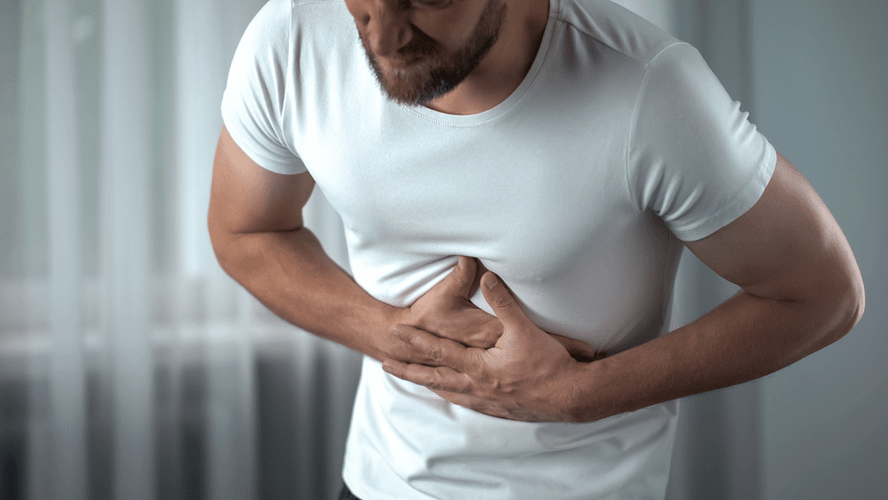Contents

Vodka is typically the better choice when it comes to low calorie and carb-free alcohol, as both types of alcohol can have some health benefits. Wine, when compared to beer, is likely to be healthier for those on the keto diet due to its lower carbs count. There are several other low-carbohydrate options to choose from, including gin, rum, vodka, and whiskey.

One way to do this is to choose lower calorie alcoholic beverages. Looking at the calorie content of alcoholic drinks can help people who are seeking to balance drinking alcohol with their weight loss goals. A study in the United Kingdom found that on the heaviest drinking day in the past week, calories from alcoholic drinks made up 19% and 27% of the recommended daily calorie intake for women and men, respectively. This article reviews the calories in wine, how it compares with other alcoholic drinks, and whether drinking too much of it can lead to weight gain. The thing is, alcohol, including tequila, is harsh on the stomach. No matter how much tequila you’re drinking every night, you’re still drinking alcohol and thus, you’ll probably start feeling the pain.
Swelling after a night of drinking is usually temporary and may be gone within 24 to 48 hours. However, there are some things you can do to relieve swelling and any discomfort it’s causing by getting rid of water retention after drinking alcohol. Moderation is important, and so is knowing how to choose drinks that will have the least impact on your weight loss goals. Your social anxiety isn’t the only thing that alcohol inhibits. Intake of alcoholic beverages can also inhibit proper digestive function. However, alcohol also plays a large role in weight management.
- Drinking tequila every night might not be everyone’s idea of a healthy diet, but you may find it gives your metabolism a much-needed boost.
- « There’s no black-and-white answer here; everyone is unique in how their bodies react and break down alcohol, » Maurin explained.
- Claire Gillespie is an experienced health and wellness writer.
- If you’re trying to lose weight, you may want to limit your alcohol intake or choose lower calorie options.
With fewer calories and carbs, these are the best brewskis for weight loss, Cederquist says. Many light beers contain 90 to 100 calories per 12 ounces, while extra-light beers pack about 55 to 65. Here, a few types of alcohol with the least calories per serving, according to the National Institutes of Health . If you’re aggressively pursuing a weight loss goal, consider your schedule before popping open a post-work bottle of wine.
Does Wine Make You Gain More Weight Than Liquor?
When consumed in moderation, alcohol has no effect on weight gain or appetite. It is known that drinking too much red wine, or any alcoholic beverage, can make you gain weight. Because potato vodka contains no gluten, sugar, or artificial flavors, it is one of the healthiest vodkas on the market. A good rule of thumb is to consume no more than five ounces of wine per day for women and two ounces per day for men. Many people who want to shed pounds come to ketogenic eating and are delighted that, unlike many diets, alcohol isn’t strictly forbidden when going low carb, high fat. While it may slow weight loss for many people, the occasional glass of dry white or red wine, champagne, or even distilled liquor may be okay — as long as it has no sugar.

For the best options, see our guide,Top 5 low-carb alcoholic drinks. Because both alcoholic beverages can be harmful, it is critical to consume them in moderation. According to a study, vodka and wine are both high in monounsaturated fats. Vodka is one of the cleanest liquors because it is distilled multiple times during the manufacturing process. Furthermore, it can help to prevent heart problems such as clots, strokes, and heart disease.
Alcohol Keeps Your Body From Burning Fat
Other sober living for women in beverly, ma benefits include the prevention of Alzheimer’s disease and osteoporosis, as well as the prevention of cardiovascular disease. A person who consumes wine has a lower risk of developing health problems than someone who consumes beer or liquor. Vodka is lower in calories and carbohydrates than other types of beverages, making it a healthier choice for those who are concerned about their weight. Wine is a healthier alternative to vodka for those looking to lose weight or maintain a healthy weight because it contains fewer calories and sugar. Vodka has no nutritional value as it has no antioxidants, whereas wine contains some.
It is an alcoholic beverage that contains ethanol and can have a range of effects on your physical and mental health. It is metabolized in the liver into acetaldehyde and further broken down into water and carbon dioxide. In conclusion, it is possible to lose weight and still drink alcohol. However, it’s important to be aware of the calories in alcohol and how it can affect your appetite and water weight. It can make you crave unhealthy foods or make you less likely to eat healthy, calorie-controlled meals. If you’re trying to lose weight, it’s important to be aware of how alcohol affects your appetite and make sure you’re still getting enough nutrients.
Does Drinking Alcohol Make You Gain Weight?
If you want a happier, more stable life, one of the BEST things you can do for yourself is quit drinking alcohol. That’s an additional 2,000-3,000 calories of fatty, salty, nutritionally poor food sitting in your stomach, which is still reeling from the 4,000+ nighttime calories you crammed into it less than 12 hours ago. What is the best way to replenish energy reserves in the body? This is why you enthusiastically shove cold slices of pizza in your face the day after drinking. So to recap where we are currently, you’ve just consumed anywhere from 1,000-2,000 calories at the pub, and now you’re inhaling another 1,500-2,000 calories of high fat, high sodium food. But not until your body is done with the alcohol and if you’re a heavy drinker, well, your body has only so much metabolic bandwidth.
You must moderate your consumption in order to maintain a healthy lifestyle. Your waistline and overall health should not suffer as a result of excessive consumption of vodka. Wine has far fewer calories and sugar than bread, making it a far healthier beverage. A 5-ounce glass of wine contains between 100 and 150 calories, whereas a single shot of vodka contains approximately 97 calories. If you’re looking for a calorie-counter, vodka has fewer calories than wine, so it’s a good idea to choose it.

According to Insider, « Tequila is made up of agavins, a certain type of indigestible sugars that move through the body unused. » So, they won’t cause any unwarranted side effects. « These molecules have also been found to simulate metabolism and to help burn fat, » the publication explained. Now, if you drink it in a margarita loaded with sugar, that’s a different story. First,alcohol can cause weight gain simply because it has calories. Not only does the actual alcohol have calories, but additives and mixers that are included with many alcoholic beverages can be packed with calories as well as sugar. The calories that come from alcohol are considered empty, meaning they have no nutritional value.
As a result, if you’re attempting to lose weight, you should choose vodka over wine or beer. While any type of alcohol can cause weight gain, it is especially important to remember that it is not the only one. Because of the lack of nutrition, alcohol is classified as an empty calorie.
If you drink tequila every night, you’ll probably be just fine. That is, as long as you’re not drinking too much of it and aren’t looking for tequila to solve all your problems, of course. According to the Dietary Guidelines for Americans, about 20 percent of the total calories people consume come from beverages.
Six ounces of ginger ale has 62 calories, and the same amount of cranberry juice has 116 calories. So your vodka drink could end up being well over 200 calories. Moreover, what alcohol you drink is not as important as how you drink it. For one, drinking too much vodka can cause gassiness, diarrhea, painful bowel movements, a feeling of fullness in your abdomen, and bloating. Additionally, it can cause you to develop hemorrhoids, ulcers in your stomach, and even internal bleeding, which is about as dangerous as it sounds. Drinking too much vodka every night can also damage your intestines, which can lead to malnutrition as your body can’t absorb nutrients from food properly.
The physical and mental effects of alcohol can also contribute to weight gain. When you drink, your ability to make decisions is impaired, and that includes making healthy food choices. After a couple of drinks, it gets harder to pass on the plate of French fries or order the salad instead of the cheeseburger. And you’ve probably noticed that you get the munchies after a night of drinking, even if you ate a full dinner. Curious about what impact your vodka nightcap might have on your cholesterol levels? As it turns out, drinking a moderate amount of vodka every night might be good for them, as noted by registered dietitian Laura Krebs-Holm.
About 50 million Americans are thought to be affected by metabolic syndrome. Resveratrol is a component of red wine and is thought to help with liver disease. Because gin is low in calories and can be added to other drinks, it is an excellent choice for those on a low-calorie diet.
Here’s how to subtract calories from your diet, adding up to gradual weight loss that … What’s more, all that extra imbibing likely isn’t aiding any slim-down efforts. Drinking too much wine can cause you to consume more calories than you burn, which can lead to weight gain. Drinking a shot of tequila is alsonot the authentic way,The Daily Meal explained.




